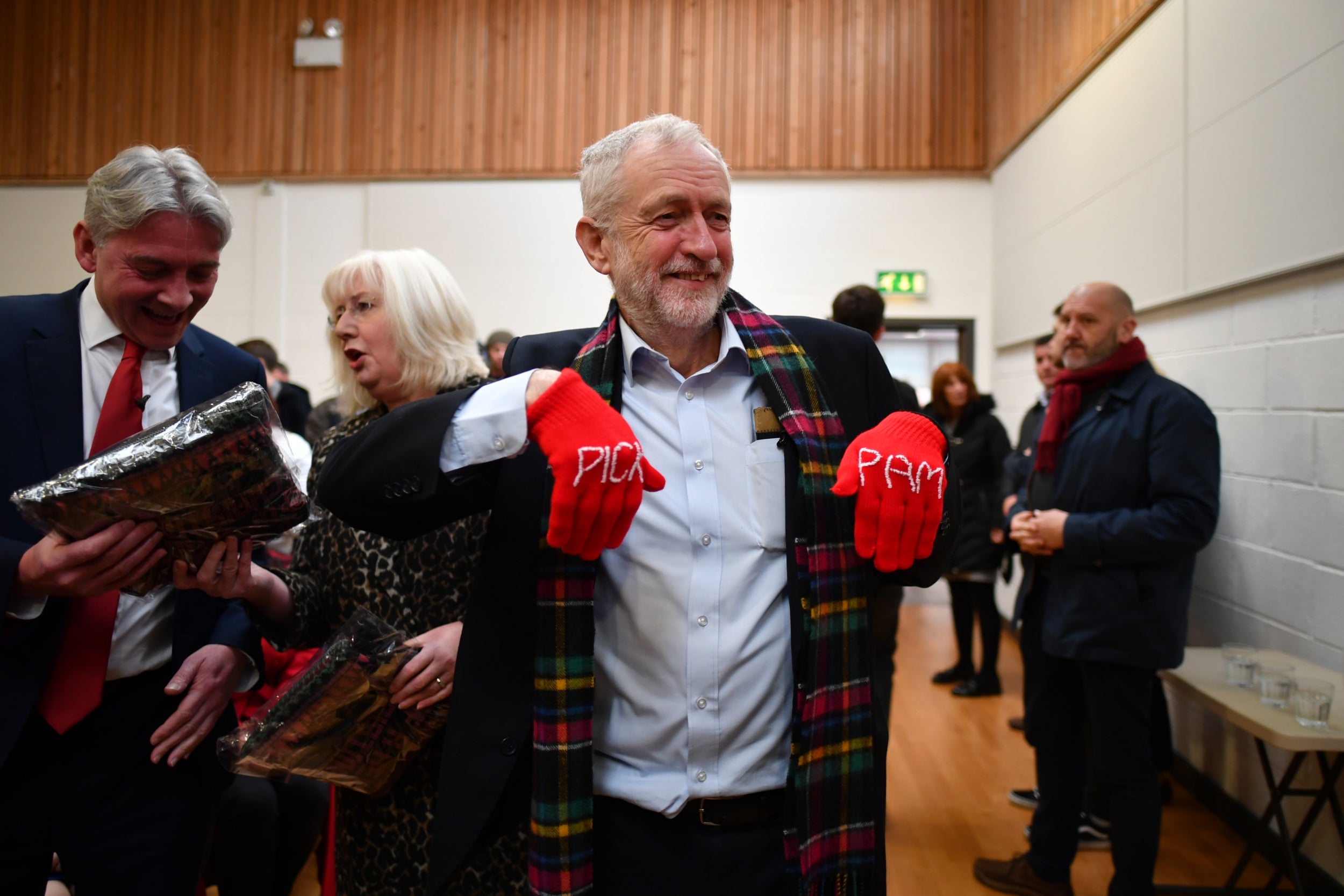General election: Johnson seeks to capitalise on confusion over Labour stance on Scottish referendum
Jeremy Corbyn appears to rule out independence vote for five years, only to backtrack hours later
Boris Johnson has sought to capitalise on confusion over Labour’s position on a Scottish independence referendum by warning that a hung parliament would deliver a “Corbyn/Sturgeon technicolour coalition of chaos”.
On the first day of a two-day campaign visit north of the border, Jeremy Corbyn appeared to rule out a referendum for the full five-year period of Labour’s first term in office.
But he later backtracked, after the Scottish National Party warned that he risked forfeiting any chance of cooperation if the general election ends in a hung parliament.
Mr Johnson claimed in a campaign speech in Rugby that a vote for any party other than the Tories on 12 December risked “months, if not years, of dither, delay, discord, division” under a Labour/SNP alliance which would deliver referendums on both EU membership and Scottish independence in the course of 2020.
The prime minister insisted Tories were committed to a mainstream One Nation programme which would hold the UK together. And he said the Brexit deal which he struck with Brussels in October was ready to be implemented as soon as Tories took office – “just add water, stir in pot”.
But he was hit by a call from former cabinet colleague David Gauke for mainstream Tories to vote Liberal Democrat to stop a hard Brexit.
Mr Gauke – who was lord chancellor until July but was thrown out of the Tories by Johnson – said Conservatives had got Brexit “badly wrong” as he announced he will fight his South West Hertfordshire seat as an independent.
On the eve of Thursday’s deadline for general election nominations, Brexit Party leader Nigel Farage indicated he would resist pressure to stand down candidates in the Labour-held seats being targeted by Conservatives, declaring: “We’re going to stand against every single one of them.”
And despite announcing earlier this week that the party would not contest seats won by Tories in 2017, Mr Farage revealed he would not vote Conservative in the Kent constituency where he lives.
“No, given the way the Conservative Party have behaved this week – I could not vote for them,” he said.
Mr Johnson stopped short of appealing for the Brexit Party to stand down its candidates.
But in a message to Farage, he said: “It is always a very difficult thing for any party leader to withdraw candidates from an election and I understand that. But all I can say is ... there is only one way to ensure that we get Brexit done – get this thing finished, get us out, do a fantastic free trade deal – and that is to vote for us and the Conservatives.”
Speaking to reporters in Glasgow, Mr Corbyn appeared to toughen his stance on an independence vote for Scotland, saying that there would be “no referendum in the first term for a Labour government” even if the SNP won a majority of Scottish seats at Westminster.

But aides immediately rowed back from the comments, saying the position could change if Nicola Sturgeon’s party wins control of Holyrood in the 2021 Scottish parliament election.
And pressed again on the issue hours later, Mr Corbyn insisted he had been misunderstood, saying that Labour will not countenance an independence referendum only “in the early years” of its time in office.
He later warned that votes for the SNP were more likely to benefit Mr Johnson, tweeting: “Nicola Sturgeon has just said this about me: I won’t help him in power, to get into power, to stay in power. Just like in 1979, the SNP are willing to usher in another heartless Conservative government.”
SNP spokesperson Neil Gray said: “Only a vote for the SNP is a vote for Scotland to escape from Brexit and give people a choice of a better future with independence.
“No Westminster party has any right to stand in the way of that – and these latest comments show that privately Labour are well aware that their undemocratic position of simply ignoring the Scottish people, no matter what they say, is completely unsustainable.
“And with the once-dominant Scottish Labour party now at the point of extinction, and Labour voters turning to the SNP, Jeremy Corbyn is in absolutely no position to tell the people of Scotland if and when they can have a say over their own future.
“As we have made crystal clear, no one looking for support from the SNP after this election should bother to even pick up the phone unless they are prepared to accept the democratically expressed will of Scotland.”
As the Labour leader began his Scottish tour, the party’s former Glasgow MP Tom Harris, who served as a minister under Tony Blair and Gordon Brown, revealed he will be voting Conservative in the general election because of his opposition to Mr Corbyn.
Declaring that the idea of Mr Corbyn as prime minister “chills me to the bone”, Mr Harris branded the Labour Party leader an “extremist” and claimed he was “not someone who can be trusted with the security of the nation”.
Join our commenting forum
Join thought-provoking conversations, follow other Independent readers and see their replies
Comments
Bookmark popover
Removed from bookmarks